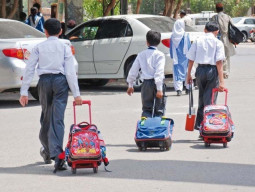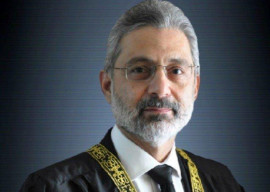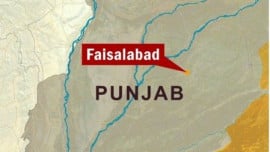
There were varying levels of play preceding Chicago that underlined an emerging consensus which was that Pakistan had been left out in the cold after Salala and now had an opportunity to resurrect itself in the Afghan endgame. The motivations and the implicit interests of various players, however, seemed vastly different. The US, haughty by now, after having to deal with an overly irritating Pakistan, just did not wish to engage Pakistan any more unless the latter could offer a substantial helping hand in American closing the case on Afghanistan. Thus, when Turkey recommended an invitation on the understanding that Pakistan will resume supplies through the suspended Ground Lines of Communications (GLOCs), Nato obliged — not the US. Pakistan was, therefore, technically Nato’s guest, not America’s. Yet both refused to acknowledge the presence of Pakistan’s president.
Many felt that missing out on Bonn after Salala was a mistake; and that Pakistan must, therefore, use the opportunity at Chicago to be seen to play its positive role in resolving Afghanistan. Two, the army emerged willing to move beyond Salala while ostensibly holding on to the need for a fig-leaf apology; it seemed keen to reestablish the ties that would give relevance to Pakistan’s role as Afghanistan neared closure. The government saw in it the possibility of some desperate funding to buoy their revenues so that an election year budget could be made possible — almost $1.1 billion has already been included in next year’s estimates. The president and his men found this an opportunity to establish his position alongside the world’s top leadership with the implicit benefit accruing to the PPP in a nervy election year. The environment had thus been crafted to advantage Pakistan with implied benefits, except that something ‘had to be done’ when in Chicago; mere presence was not enough. This is where the roof caved in on the entire plan.
It seems that the two sides, Pakistan and the rest, got into a typical ‘chicken and egg’ cycle and could not decide which would come first — the audience with Obama or the announcement to open the routes. In this guessing game the moment was lost, and President Zardari fell to his Plan B — the stated position that has held the US-Pakistan relations on hold, perpetuating the ‘hold’ for the foreseeable future. Inaction and paralysis are never known to induce fermentation; the promise of an opportunity at Chicago, hence, lay hopelessly unfulfilled. Similarly, domestic political imperatives in an impending electoral powerplay trumped statesmanship in a nation already devoid of credible leadership.
What held Pakistan back from doing the right thing? The most popular theory, of course, will always be a recalcitrant military that, allegedly, in the first place never wanted the resumption of routes and ties with the US. Such a view also gets instant favour given the typical speculative aspersion that is cast on the army’s role as the arbiter of US-Pakistan relations. One never knows whether the army is keen to get her millions, as is also alleged, or stall the ties because of an anti-American disposition. Or, was it the fear of a political backlash that had the PPP locked in inaction, with the vocal PML-N-led opposition exploiting latent anti-Americanism.
Finally, the constant rant of Musharraf having sold the nation cheap to the Americans has come to haunt the current leadership which as an ‘atonement reflex’ seeks a higher rent for the same services. The transactional in the relationship still rules the roost. Perhaps, by accepting the transactional the relationship can be inured from hopes of misplaced convergences and false strategic essence. Relations go dysfunctional when altruism is used to embellish what is patently base.
Pakistan remains a typical poorly led and a confused nation that is losing its way by the day.
Published in The Express Tribune, June 5th, 2012.
COMMENTS (17)
Comments are moderated and generally will be posted if they are on-topic and not abusive.
For more information, please see our Comments FAQ






































It seems that Pakistan is loosing its image, in the eyes of the world...day-by-day....
Dear Fatah,
Please let me remind you that the invitation to the Chicago summit did not come with the prerequisite of reopening the supply route for NATO through Pakistan. The spokesperson to the President, Farhatullah Babar, made it clear that the invitation was unconditional and not linked to the reopening of ground lines of communication for NATO or to any other issues. The discussions with Pakistan on reopening the Ground Lines of Communications (GLOCs) continue, and we remain hopeful of finding a resolution in the near future. It is important to realize that we have a much deeper bond that derives from our common stance against terrorism. The history clearly shows that we are capable of overcoming challenges for the sake of achieving our common objectives. Our relationship has certainly suffered since the Salala incident, but we’ve not given up on ironing out our differences. The recent meetings between our officials prove that efforts are being made from both sides to move forward. It would be preposterous of us to ignore the importance of both nations working side by side to combat terrorism and bringing peace and stability to the region.
Pakistan Must Look After Its OWN Interest. Pakistan will have to Fix its own problems as well as seek answers indegenously. Pakistan must create indegenous resources like good engeeniering industries for infrastructure developments. Pakistan Corp of Engineers should take lead to develope many projects within Pakistan. The Financial Sector must be promoted to issue many types of Saving Bonds for raising capital. Pakistan strength most under utilised, Lets Look Beyond.
What went wrong at Chicago?
Wrong question. If anything did go wrong, it did so in Pindi and Islamabad.
@s.khan: If US had invited Zardari, it would have been rude of Obama not to meet him. But the invitation was by NATO and it was a NATO conference - held in US. For that matter Obama does not meet all country heads who come to New York for a UN meeting either.
There is an eyeball to eyeball confrontation going on. Not between US and PAkistan but between Pak civilian government and the army. Both want the money, neither wants the blame. We have to see who blinks and gives in to the US despite the ensuing unpopularity.
@Wajib: "s if the drones were not enough we had Swat, FATA, earthquake, floods"
So let me get this right. Do you blame US for the earthquake and floods in Pakistan?
"As if a decade of subjugation and coercive participation in the so called war on terror against our own brothers was not enough, we had the drones."
You give a problem and the reason it exists in the very same line. Nobody is going to apologize for defending themselves, regardless of the scale it is on, either. Countries have been invaded and destroyed throughout history for less than the games Pakistan plays. You should be apologizing for being an inconvenience to the majority of the planet and thankful to the establishment of human rights outside your borders that keeps people and countries restrained in their reactionary relationship with you.
nothing.
Who cares what went wrong in Chicago?
America just signed a deal with the Central Asian republics to move out equipment from Afghanistan.
Now Pakistan can keep the border closed and cut diplomatic relations with the Americans.
Win Win for everybody.
And Pakistan thought it would receive a warm welcome when it showed up with nothing but a request for more money?
Why should Pakistan be needed to make the right moves and the right noises - I think USA and NATO owe Pakistan a million apologies and much much more. As if a decade of subjugation and coercive participation in the so called war on terror against our own brothers was not enough, we had the drones. As if the drones were not enough we had Swat, FATA, earthquake, floods. As if those weren't enough we had Dr. Aafia and Raymond Davis. As if that left something out we had Abbottabad and Orion. As if that was still not enough we had Salala... how much more humiliation and subjugation should we be expected to absorb???
A lot of conjecture, not much in the way of "solution".
It is difficult to understand why Zardari government tried to get invitation to the meeting when it had nothing to offer. It should have made an offer that NATO would have found difficult to refuse. Having said that, President Obama showed rudeness in refusing to meet with President Zardari. He could have used the meeting to persuade Mr.Zardari to open the routes and co-operate in Afghan solution. It looks very likely that Pakistan would be shut out from Afghan arrangement. Both sides played their cards badly.
I think the army is most keen for the GLOCs to be reopened - and would have been rather disappointed with the lack of traction after Chicago. The plan would have been for everyone's favorite whipping boy (the PPP govt) to shoulder the blame for capitulating to American hegemony despite the courageous stand taken by the army and the parliament; well, President Zardari has called their bluff by maintaining status quo. As we can see from the article, all the military apologists are getting mighty skittish with the continued uncertainty, and while NATO continues to close doors on Pakistan by exploring other exit options from Afghanistan (any additional expenditure incurred in using the Northern routes will be deducted from future Pak military assistance for sure) - will be interesting to know how they wriggle out of this situation.
Too many cooks spoil the broth, and in PAK there are way too many cooks.